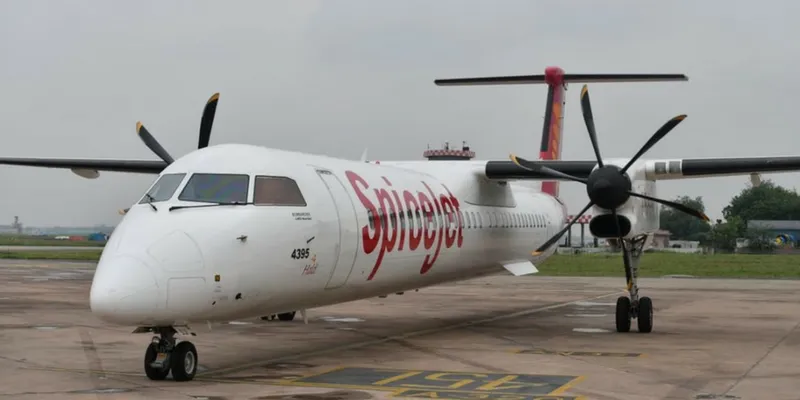In a first, SpiceJet operates India's first biojet fuel flight
For the first time in the history of Indian aviation, SpiceJet successfully tested a 72-seater aircraft with biojet fuel. The aircraft took off from Dehradun and landed at Delhi airport in a span of 25 minutes.
This will promote cleaner and efficient air travel, which will eventually bring down the operational cost and dependence on aviation fuel.

The biofuel used by the Spice Jet Bombardier Q400 turboprop aircraft was developed by Dehradun-based CSIR (Council of Scientific and Industrial Research) and Indian Institute of Petroleum.
It has been analysed by the Deputy General of Civil Aviation (DGCA) and Indian Oil. The proportion of fuel used in the aircraft was 75 percent biofuel and 25 percent of aviation jet fuel, according to an official source.
The 450 litres of biojet fuel was developed using oil extracted from the seeds of the Jatropha plant which was supplied to IIP by the Chhattisgarh Biofuel Development Authority (CBDA). The CBDA had procured it from 500 Chhattisgarh-based farmers.
Anil Sinha, Principal Scientist at IIP who headed the 20-member team that developed the biojet fuel said that the institute will now procure oil from various seeds and trees for biofuel production.
“Procuring feed for biofuel is a challenge. However, once streamlined, it will help farmers and tribals earn from supplying the feed. Currently, Tezpur University in Assam has assured us that it will send us a few thousand litres of Nahor oil (from the Nahor tree). Seed-bearing trees can be used for biofuel formation, so in the coming years, biofuel production will surely give a boost to agro-forestry,” Sinha says.
The biofuel used by SpiceJet is a mix of the oil extracted from the seeds of Jatropha plant and aviation turbine fuel. The production of the partially-refined bio-fuel involves the work of five hundred farmer families in Chhattisgarh, says NDTV.

Technically, biofuel comes at a much lower cost when compared to aviation jet fuel used at present. The process of extraction of bio-fuel is easier and doesn’t require an expensive setup like the oil refineries. In addition, the biofuel enhances overall life and brings down the maintenance cost of the engine.
In an official statement SpiceJet officials said,
It has the potential to reduce our dependence on traditional aviation fuel by up to 50 percent on every flight and bring down fares.
The use of biofuel was given a green signal by the Uttarakhand Chief Minister Trivendra Singh Rawat from Dehradun’s Jolly Grant airport. On the test flight, the aircraft had 20 people on board including officials from aviation regulator DGCA and Spice Jet which was a demonstration flight where there will be no passengers on it, except the airline executives and DGCA officials.
Union Petroleum Minister Dharmendra Pradhan told ANI,
Today we have successfully implemented it in the aviation sector. It’s a big achievement in aviation and clean energy sector. GST has been decreased on Biodiesel and ethanol.
Biojet fuel is recognised by the American Standard Testing Method (ASTM) and has met specification standards of Pratt & Whitney and Bombardier for commercial application in aircrafts.
Research and development in the biofuel will help many domestic airlines as the rising price in the ATF (Air Turbine Fuel) have had a negative impact on the airline operations, reports The Indian Express.
According to Business Standard, the first-ever plane to fly on biojet fuel was a Virgin Atlantic flight between London and Amsterdam a decade ago.
Do you have an interesting story to share? Please write to us at tci@yourstory.com. To stay updated with more positive news, please connect with us on Facebook and Twitter







